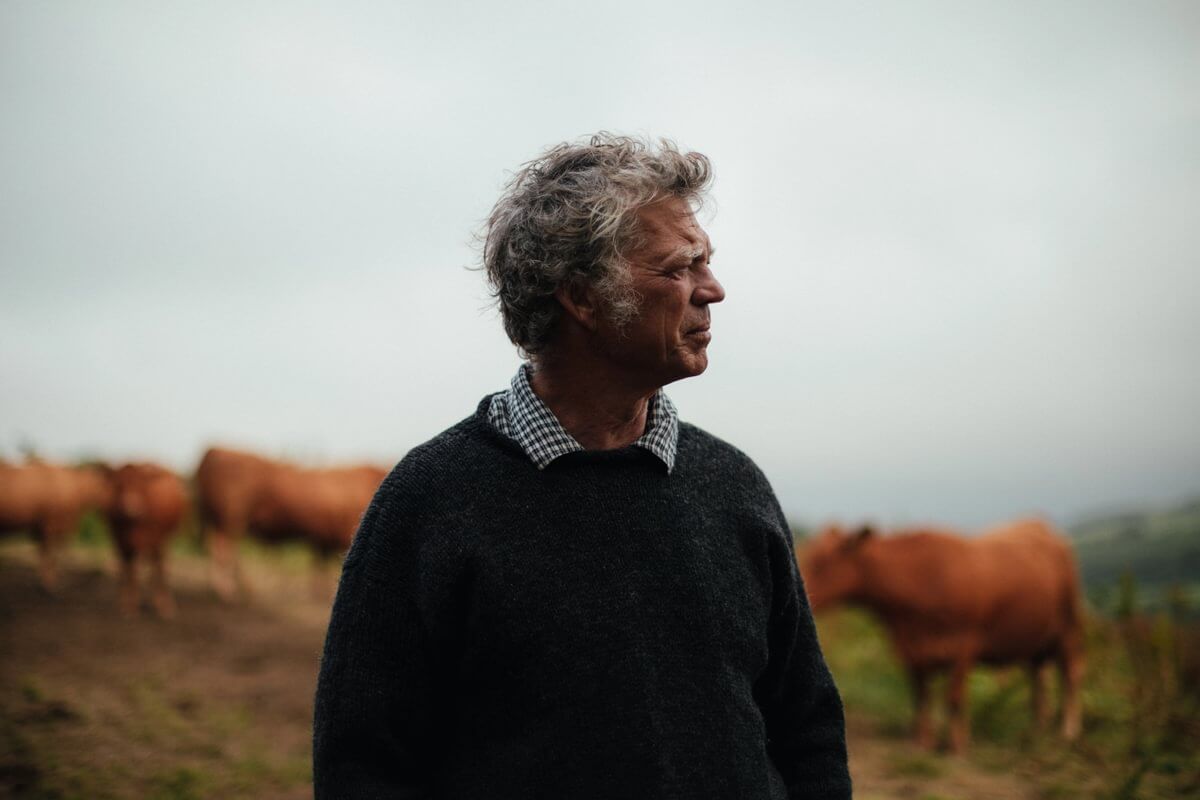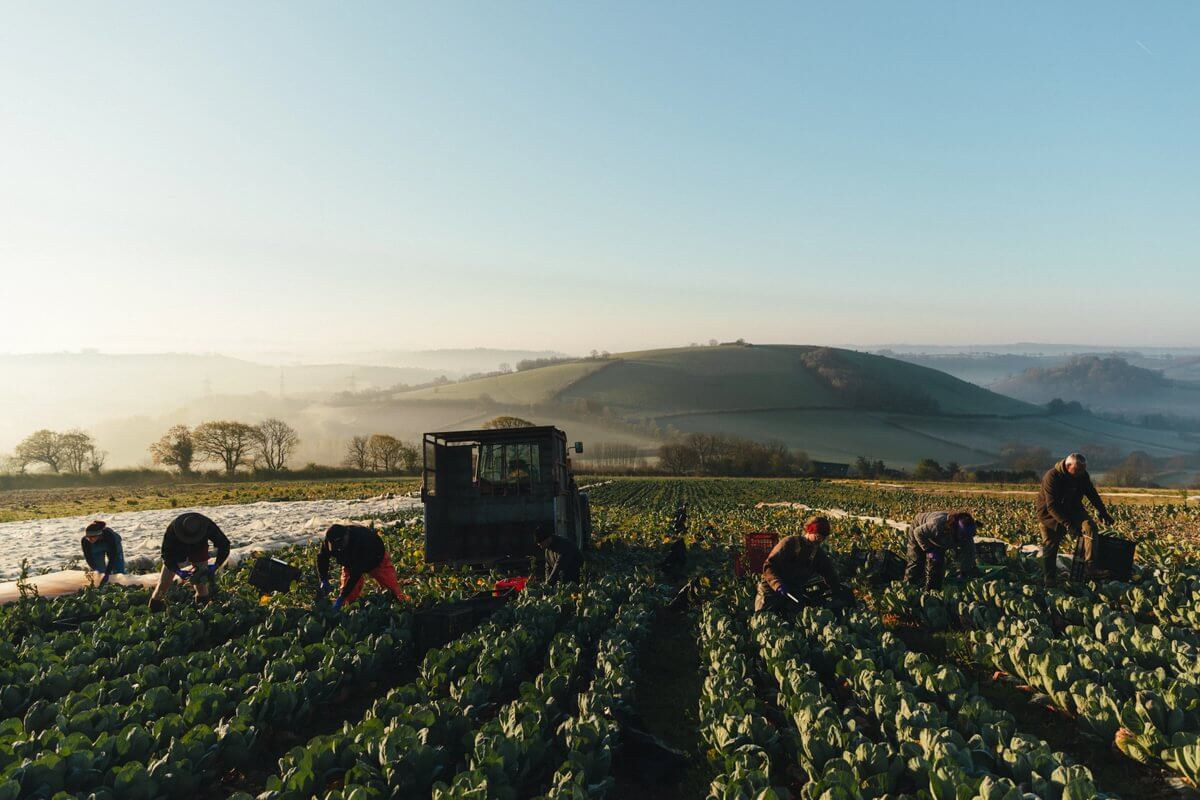For subtropical crops that rely on a good summer to grow in the UK, the time is up. As the sun’s arc dips, temperatures drop, and moisture levels below ground rise, sweetcorn, maize (the less sweet version grown for cows), and the Solanaceae family (tomatoes, peppers, aubergines, and potatoes) are dying on their feet. Oh for a few more weeks of summer, to ripen the green tomatoes and maize cobs, and cure the skins of the squash for better storage. But the first frost is beckoning, and it is already becoming hard for machinery to travel on increasingly waterlogged land – so we must grab what crops we can and get them safely into the barn.
In our Devon polytunnels, we have already cleared all the cucumbers and re-planted with the rocket, claytonia, mizuna, dandelion leaves, mustard, and lettuces that will provide your salad leaves through the winter. Tomatoes, peppers, and chillies will be cleared over the next week, to plant more. Heartbreaking as it is to abandon the fruits, ripening has almost stopped, and with declining light, their flavour will be disappointing. It is critical to get our salad greens planted by mid-October, so that the plants can get established in good conditions.
This week, we will harvest the last of our Crown Prince squash. It is too late to sow a green manure (such as clover) in the empty fields before winter, so we rely on weeds to cover the ground, soak up any nutrients, and protect the soil from winter rains. As a young man, I would have worried about the chickweed setting seed, or docks and thistles strengthening their root reserves – but as the years pass, I am more sanguine about their place on the farm. These weeds were often a symptom of using too much, or too raw, muck; as we have moved on to using compost instead, we seem to have found a surprisingly comfortable coexistence.
Despite a cool summer, plenty of moisture has given us a huge crop of squashes. We have all but given up growing Butternut squash in Devon; our farm in France produces twice the yield for much less work, and the extra sun means they always taste and store better. Crown Prince squash, with its sweet, dense orange flesh under hard blue-grey skin, is unquestionably the best variety for UK farmers and cooks alike. Boxes of mixed squash will be available next week – we hope you enjoy them.














0 Comments